#dennis meta
Explore tagged Tumblr posts
Text
I’ve seen posts about how CEO/Musk guy = Mac/Fat Mac/Hawaiian Shirt Mac, but not sure if anyone’s made this comparison yet:
I interpreted CEO guy also as a “representative” of Dennis himself… Who he could have been, had he the luxury to make different choices in his life. Who he’d be if he had money and power. Sure, he might look pudgy and un-Vitruvian, but he’d be relaxing at the beach and he’d be successful—a winner. Happy. If only he could let go of control in his *actual* existence, if only he could let go of his messed up childhood and trauma etc., he could’ve been somebody… Somebody loved, somebody with someone like Mac at his core, loving him with enough heart to be as rare as a diamond—or at least trying his best to make it that way (video call, pressure cooker). Diamonds are pure, tough, precious, valuable. Diamonds are forever... But as it is, Dennis will just subsume them, take this form of love in the only way he knows how—through fantasy and violence and, uh, eroticism. It’s the only way he knows, the only way he’s worthy of receiving it. (Side note: He IS willing to receive/take it now, though - huge step!)
My other interpretation was that CEO guy is a “representative” of Dennis’ health. The guy who plays the CEO is literally the doctor who walks past Dennis in the final sequence, so this tracks. Also, the fact that Dennis presses the man’s hand to his own heart first shows that kind of intrinsic connection/understanding. And, as his health personified, the fact that the CEO is pudgy but ultimately happy and successful—while Dennis is ‘beautiful’ BUT tormented and rage-filled, no matter how hard he tries (even in a fucking delusion/fantasy of his own making)—of course the only thing Dennis can do is fucking rip his heart out and pressurise it into a diamond.
In other words, in his delusion, Dennis himself is personifying his mental health issues/inner turmoil, whereas the CEO is personifying all other aspects of his health and life. There truly is greatness (diamond) within Dennis; he knows this (and this is where Mac comes in… they are inextricably linked, after all.). But the only way Dennis knows how to extract this greatness and love is through rage, fantasy and violence and, uh, eroticism again... All of which are coping strategies, bc he doesn’t actually know how to achieve the greatness he’s striving for—that level of perfection is a fallacy, and he also knows he’s fucking doomed no matter how hard he tries because the problem is in his own mind--an eternal byproduct of his trauma. (the ‘not your fault’ throughout is, again, a huge milestone for him, imo)
The main reason I thought all of this, btw, was the simple fact that CEO guy is wearing a red Hawaiian shirt, a la:

The Gang Solves the Bathroom Problem
Which, incidentally, is also the only time we ever witness Dennis outright call himself a ‘straight man’ (when he clearly, painfully isn’t), playing up to a false persona of his own creation, with his real feelings being completely irrelevant. As long as he is pretending to be the perfect person -- his trauma/shitty life experience has taught him is the only way to be -- that’s the most important thing of all. with that, he is in control. he is god.
Hmm yes. Thank you for reading my essay.
#dennis reynolds#dtamhd#iasip#iasip spoilers#flexing that English degree good style here baby#and that career in writing#and that lifetime of analyzing the living shit out of everything#to precisely nobody but myself#this is why i usually just do the fic thing#too many Big Feelings#and FAR too much time on my hands today to do this#what can i say? sometimes the stars align...#dennis meta#my ramblings#ask me how i know#and why i care so much#btw#:')
18 notes
·
View notes
Text
sunny should do an episode where the gang descends through the layers of dante’s hell and at first they’re all a little freaked out but it’s still got the sunny background music and they’re joking and getting into situations but as it progresses the mood gets more and more somber and the sets get more disorienting and their experiences more disturbing until eventually we end on ten minutes of dead silence while the gang silently walks down an endless and shadowed staircase that grows progressively darker and darker until the screen is fully black and all we can hear is the shuffling of their footsteps ever further down down down until even that fades into nothing but an unfathomably endless darkness
#called The Gang Seriously Actually Really Goes to Hell#the dennis meta this episode would produce would go so crazy#also opportunity for fat mac cameo in the gluttony ringgggg#iasip#its always sunny in philadelphia#its always sunny
859 notes
·
View notes
Text













the gang + monsters
#is this anything#it's always sunny in philadelphia#iasip#dennis reynolds#dee reynolds#charlie kelly#mac mcdonald#frank reynolds#'fun monster' is my absolute favourite frank meta it makes me feel insane
233 notes
·
View notes
Text

Holes. Keys. What Have You.
I have full analyses I've been wanting to actually do and gather images for over the entire past year, but in the meantime, have this <3.
#iasip#dennis reynolds#art#it's always sunny in philadelphia#iasip fanart#iasip art#sunny sweet 16#season 16#dennis takes a mental health day#the gang escapes#sunnyblr#god hole#my art.#anmmbposts#macdennis sort of but not entirely#sweet dee gets audited#local girl only knows how to obsess over and draw for one random quote sorry#half meta but i have so much more on this i just also have the coherence of ge*rge cost*nza and intense brain fog constantly#rattling bars is anyone listening do you see do you see#the key...#the car as identity...#oh so much so much anyway i quite like how this turned out like my art boy (gn) 🥺#drew this on a whim
219 notes
·
View notes
Text
I think Henren would have been much better served by a plot that centered Mara and her thoughts and feelings about being returned home, rather than one that seemed predicated on a manufactured conflict between Hen and Karen that didn't really make much sense, given that Hen has been a firefighter for decades and presumably missed all of Denny's Halloweens as well. A Mara-focused plot seems like the most natural follow up to an episode that pitted Henren against a system that gave Mara's feelings no consideration when deciding her future. Mara's voice was, appropriately, barely heard in 8x04, so it should have been very loud in 8x05 to further contrast her treatment at Ortiz's hands vs at Henren's. This would have also allowed Denny to play a more complex role in the episode, since Mara tends to confide in him when she's not comfortable confiding in Henren (I really, really enjoy their sibling dynamic and think Denny is severely underused given the actor's capabilities).
Frankly, we all knew that Denny wasn't going to die and that knowledge, plus the out-of-the-blue, disconnected nature of Henren's conflict ruined a lot of the pathos of the car crash scene for me. Additionally, lbr, kids don't really care who takes them trick-or-treating, they just care about the costumes and the candy (imo, it was actually very thoughtful and touching of the high school girls to bring their candy to Denny - I had some big issues with Athena's plotline this episode as well). Had Hen missed Thanksgiving or Christmas, Karen's anger would have been a lot more understandable.
Overall, a missed opportunity to conclude the Mara plotline in a thoughtful way, I think.
113 notes
·
View notes
Text
We know Charlie's the alpha because no matter if he married Mac or Dennis, they'd be the ones taking his last name. For Dennis its putting on another man's skin, and maybe a bit of getting away from the Reynolds family/legacy. And Mac would finally not be Ronald McDonald anymore.
#dennis would have a whole thing of taking on another man name but he'd concied eventually#(to himself. charlie literally couldnt give a fuck and thinks that they lose both names and legally are only their first names)#i think there may have been a period of time where mac had been coing by Mac Kelly in like middle school or somrthing for two seconds#before feeling crazy guilty and using his family name again#meta#specialtysacrifice og#iasip#dennis reynolds#mac mcdonald#charlie kelly
33 notes
·
View notes
Text




The peak of Dennis' fantasy for obtaining control of his body, for obtaining peace of mind, being stealing a man's heart, turning it into a diamond, and consuming it. While Mac, in his fantasy, was trying to pressure cook a diamond into existence
299 notes
·
View notes
Text
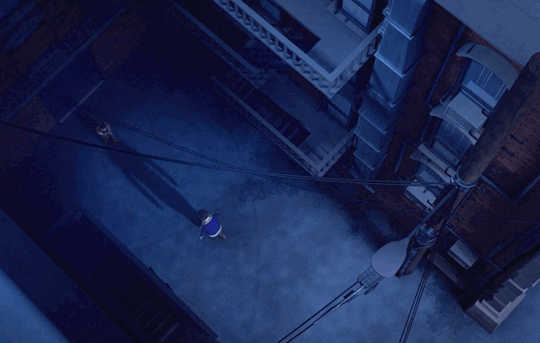
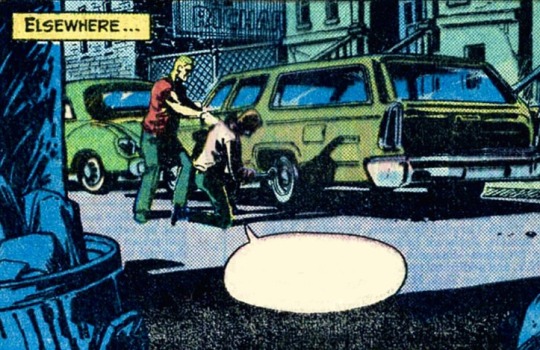


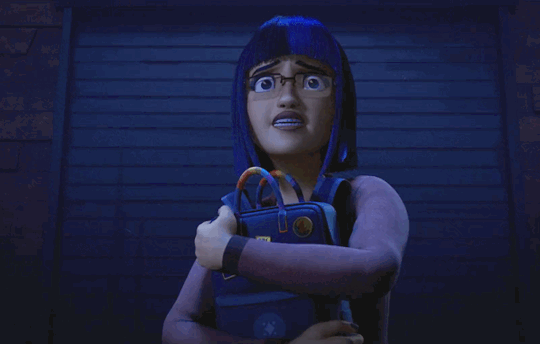
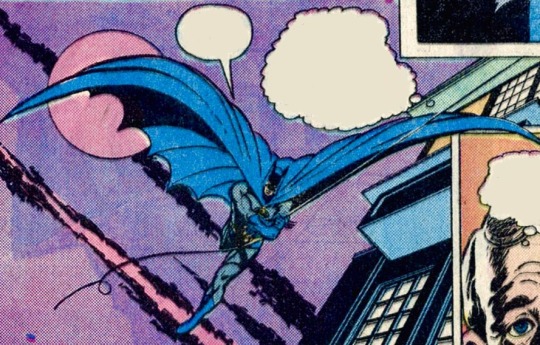

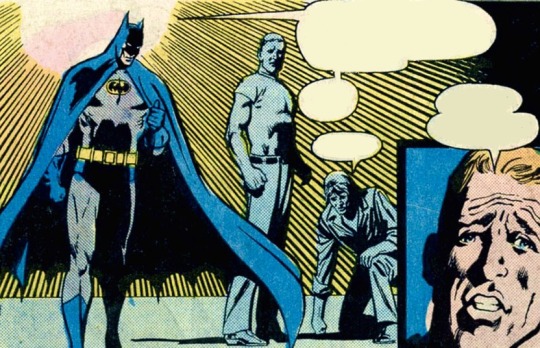
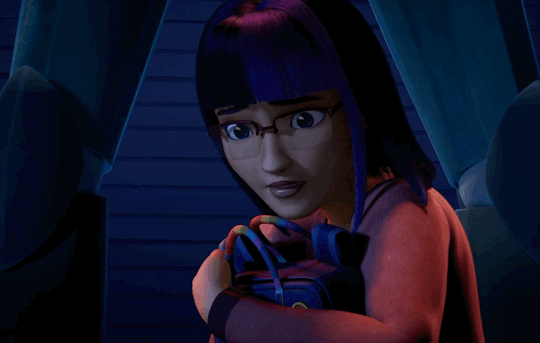

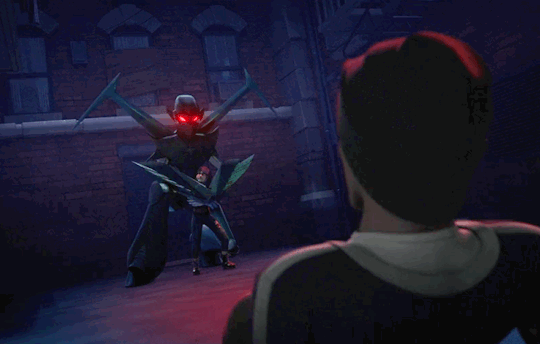
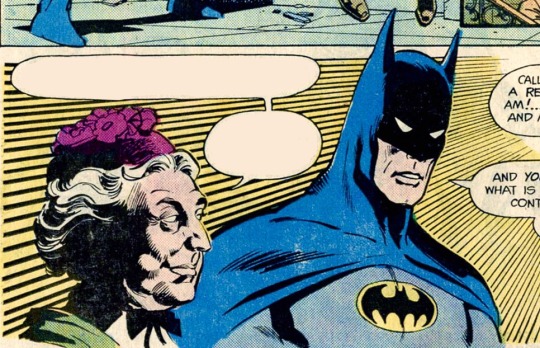
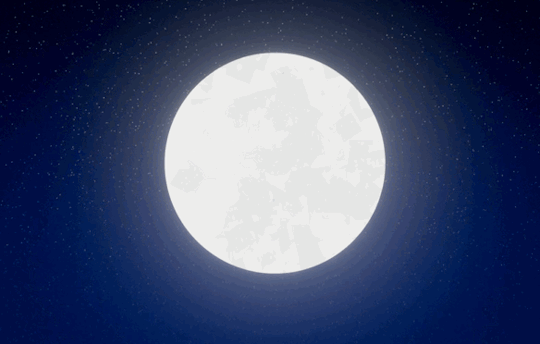

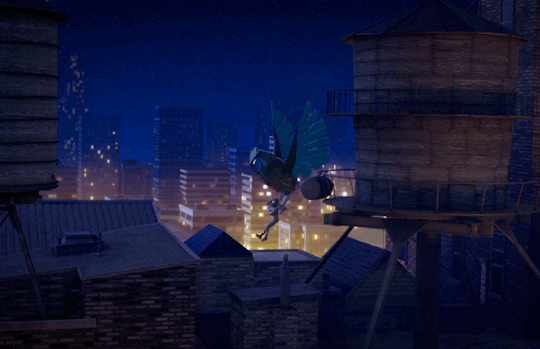
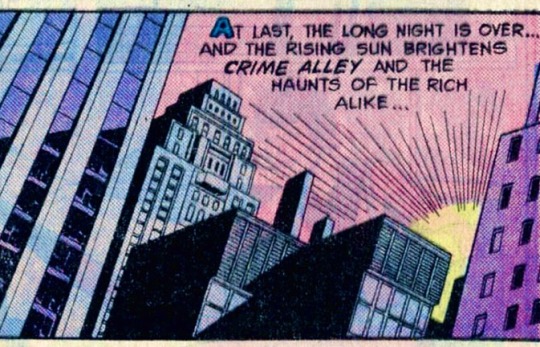
Transformers: Earthspark, 1x18: Home (2023) Detective Comics, Vol. 1 #457: There is No Hope in Crime Alley! (1976)
Bonus:


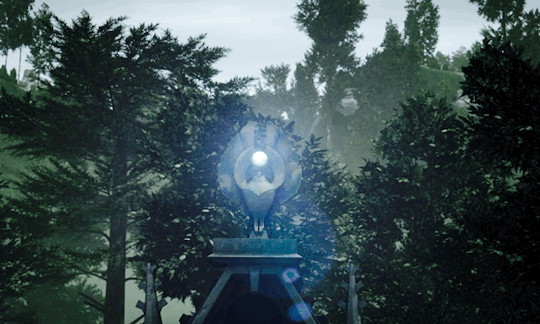
#Transformers Earthspark#transformers#Earthspark#TF Earthspark#TFES#TFE#nightshade#nightshade malto#dc comics#batman#bruce wayne#dennis o'neil#my edit#Transformersedit#tfedit#maccadam#parallels#meta#This may seem like an odd thing to parallel when they aren’t too similar#BUT I have my reasons!#these panels are from a famous Batman story written by Dennis O’Neil who was referenced as the author of the book Nightshade was reading#this is the story of when Batman went to visit Crime Alley on the anniversary of his parents murder and stops the mugging of an old friend#in a way it’s a story of identity. And Batman explores his identity with his old family friend (the older lady)#after he saves her from the mugging they talk about how there’s still hope even after everything#afterall the murder of Bruce’s parents lead to him taking up the identity of Batman to protect the citizens of gotham#Nightshade after saving this person from a mugging further explores their own identity and learns the word “non-binary”#their conversation with Sam (the person they help) helps Nightshade come into further understanding of their own gender identity#Nightshade says it well “what a wonderful word for a wonderful experience”#I hope you are all able to understand what I’m trying to say here. sometimes I’m not great at conveying what I mean exactly#but thank you for indulging me!
242 notes
·
View notes
Text
just watched the vic vinegar and hugh honey ep and honestly mac and dennis are soooooo couple in it it made me so sad i hope they either adress the fact that dennis doesnt seem comfortable with mac anymore or they bring back this aspect of their relationship


look at dennis he clearly wanted mac so much at this moment if frank had not appeared they wouldve fucked raw then and there

!!!!!!
#they were so comfortable with each other here#dennis was so touchy#let me read that meta analysis on this take again#macdennis
41 notes
·
View notes
Text








standing in front of a firing squad would have been easier than reading this script i need to be shot
#this is hands down the most insane script ive read i was sitting slack jawed half the time#not because its Outrageous but because. oh my fucking God#frank sure does have too much influence over *gestures broadly* This.#to see their dysfunction presented like this. is. so.#like. of course the reason they cant be nice to each other is because they all expect some kind of Trick. we see this again in s12#they've set a precedent where everyone is unable to be vulnerable out of fear that someone else is going to take advantage of them#its about knowing to Never let their guard down. because they can't afford to be stupid enough to think someone was being nice#its literally about them not trusting each other. they know each other. care about each other. but they're all still at war with each other#anything could be a trojan horse#and even when they try to do something thoughtful it's ruined bc their motives are being questioned and that provokes a defense#''of course i wasn't being Nice that's stupid why would i ever do that for you'' because otherwise theyre leaving themselves open to attack#i think this episode works purely because theyre All trying to change this at once and since theyre all aware of that fact#its like oh okay youre not fucking with me because we've established we're all trying not to be cynical#i cannot even begin to dig into the pure autism of this entire. not even just the episode premise. the whole basis of the gang's dynamic.#like yeah of course a group of weird neurodivergent people is hypersensitive to this#its the same thing as mac and dennis in suburbs questioning wally's intentions/demeanor welcoming them to the neighbourhood#literally in defense mode all the time because they expect the worst from people and they haven't had any reason to think otherwise#marder and rosell get it but thats not exactly new and surprising <3#but wow this script adds so much. at least for me.#iasip#it's always sunny in philadelphia#ada speaks#character meta#for good measure
191 notes
·
View notes
Text
idk if it's intentional but it's fun how in risk e rat's charlie, mac and dee all interact with mascots that match (one of, in charlie's case) their respective animal motifs
#dee = bird#mac = dog#charlie = rat#never not thinking about risk e rat meta. sorry#and frank and dennis have less well established animal motifs so dee and charlie's take precedence in their scenes. boom#risk e. rat's pizza and amusement center
72 notes
·
View notes
Note
what are the houses of the always sunny cast and what do each of them do to get kicked out of hogwarts
Oh.
Oh, that is a question, isn't it?
The Thing About the Hat
The thing about the hat is that it seems to sort half based on what your personality is and half on who you want to be and sometimes if you're Harry where you really want to go.
It's a thing people shouldn't take as seriously in canon as they do and it causes a lot of ridiculous strife because of that.
But bear that in mind, on this blog it's both who you are... but also who you want to become.
Charlie Kelly
Hufflepuff.
Charlie lives his bizarre, ridiculous, life for a variety of reasons but a strong reason is his loyalty to his friends. He's the sole reason Patty's passes health inspections, when the gang broke up that one episode he and Dee were the only ones to stick around waiting for the others to come back, one of his primary motivators is his friendship with Mac and for all he's been through a lot relationship wise he's shockingly dependable.
Except for that time he was in a psychology experiment where they gaslit him into thinking he was suddenly a genius and his ego grew so enormously he alienated all his friends and even the waitress.
He's also very hard working. God, is Charlie not afraid of Charlie Work.
And he's... aware that he's not intelligent, he's not at all ambitious for all that he is quite cunning, and he doesn't really hunger for glory.
Hufflepuff, easily.
As for how he gets kicked out... Charlie by himself probably wouldn't. Sure, he's eating fucking cat food to knock himself out at night, and he also put on The Nightman Cometh in front of Hogwarts, but I don't see him on his own doing something that would get him thrown out of the school.
Charlie would most likely be being bullied, much the way he was in high school in the show.
Ronald MacDonald
Oh Mac.
Mac is going straight to Gryffindor.
You know why?
Because he's bad ass. Mac is the coolest guy you'll ever meet, he knows karate, and he could totally kill a basilisk with one punch. Mac is here for glory, ladies and gentlemen, and he makes sure you know it.
Mac is very pleased by his sorting, the problem is... he loses so many house points trying to do daily badass stunts and the like. Want to see Mac jump from one staircase to the next? Want to see this spell he just made up? Want to watch him pull off a Wronski Feint flying?
I imagine Mac is the cause of many hospitalizations, destroyed property, and more.
And of course, as we all know, he's also a rat. Oh, he's still in Gryffindor, he sees no disconnect between his snitch tendencies and being the greatest person ever. But he's still a rat who rats out everyone to everyone.
And his classmates hate him because of this. I imagine he also tries to play Quidditch every year, and they can't let him on the team because he will cause them to lose/destroy all their brooms.
So Mac and Charlie I imagine are still best friends and bullied together.
As for how Mac gets kicked out... depends what he does. Like Charlie, Mac may not do enough on his own to get kicked out. Hogwarts tolerates a lot, so Mac causing all this mayhem gets him in detention but certainly wouldn't have him expelled.
However, if Mac came to believe the coolest thing he could do was lure an acromantula onto school grounds proper so he could battle it in front of everybody...
Actually, no, he's still not expelled in the Dumbledore Era.
Look, Draco wasn't expelled when he poisoned a student and cursed another, all with Dumbledore knowing every detail of it. The man just doesn't expel people.
Dennis Reynolds
Slytherin.
For the same reason Mac is a Gryffindor, Dennis is in Slytherin. Why? Because he's a golden god. He is sly, he is hyper intelligent, he is a mysterious sexual creature who is sexual, he is a golden god (has he mentioned that).
All of you are dying, just dying, to be his acolytes and minions.
Like Mac, Dennis is severely unpopular and despised by the actual cool kids he's going to school with who are most certainly not his underlings.
Unlike Mac, Dennis doesn't realize this and is convinced everyone thinks he's hot shit who is hot.
Dennis.... could get expelled but it depends if he snaps or not. If no one points out that actually he's an uncool loser, then he just spends his days happily running around shouting "I am a golden god!" If someone points out this isn't what's happening... then Dennis does the classic snap and whatever he does might be enough to get him thrown out.
Dee Reynolds
Hufflepuff.
She wants to be in Gryffindor, she really really really would like to be in Gryffindor. Or Ravenclaw, she's smart you know. Problem is that deep down she knows she's pathetic.
So she goes to the house whose slogan is "hard work" and "loyalty"
And spends Hogwarts hanging out with Rickety Cricket (fellow Hufflepuff) in the hospital wing in her back brace.
Frank Reynolds
Depends on the Frank era.
Pre-show, Slytherin.
He's all about ambition, making money, and fucking over everyone else while he makes money.
During-show, Ravenclaw.
His dedication to being a fucking weird hedonist and exploring his new philosophy. Since he has money, he has no burning desire to achieve more of it, he just wants to roll around in the filth to the best of his abilities.
I also don't think Frank gets thrown out, he's just... you know... that guy hiding naked in the couch :/
#harry potter#it's always sunny in philadelphia#harry potter meta#harry potter headcanon#it's always sunny in philadelphia meta#it's always sunny in philadelphia headcanon#charlie kelly#dee reynolds#dennis reynolds#mac#frank reynolds#meta#headcanon#opinion
33 notes
·
View notes
Note
I'm going to ask some meaningless questions. Do you think Paul has had sexual relationship with other men? Do you think John was his first male sexual partner? Sometimes I think it could be, because they are best friends. Sometimes I don't think so, because John's control over Paul is too strong, leading Paul to have a strong defensive mindset towards him.
Tl;dr - I do think Paul has hooked up with other men and maybe even dated but I don't think it's anyone that he was publicly friends with.
When it comes to Paul and sex with other men, that's still a black hole making us go "wtf." Technically Paul's first sexual experiences with other men were the group circlejerks and that's actually a very common initiation experience for guys. (All men are spiritually gay. Joking...or am I?) That being said it's pretty safe to say that John was Paul's first one on one experience with another guy. John is the only person Paul trusted enough for that, Paul otherwise does rapid risk assessments and usually (though not always) decides that it's not worth it. Paul does like physical risk and adrenaline but that's more like stuntman stuff. I don't think Paul has sex with other men unless he trusts them absolutely or otherwise has reason to think he won't be harmed by it. That narrows Paul's candidate pool considerably.
I think Paul is really too canny to hook up with anyone he had public ties with. He has a quote floating around where he makes fun of the press because he knew they were looking for a secret flat and a secret mistress hidden away in it and that he was proud of strategizing around that by living with the Ashers for as long as he did. He said that all of his hook ups (with women) were done by going back to the lady's home and doing it there. So he dodged media scandal by simply not having a secret flat with a mistress and a love child hidden away.
I think that Paul would handle his male hook ups the same way. I think that he would be similarly cold and calculating like he is with his female hook ups. He makes sure there is no smoking gun. I find it telling that we only have two real examples of potential datemates for Paul that aren't John: Robert Fraser and Denny Laine. And I believe they're both disqualified based off of what we know about Paul's preferences and his canniness, at least in the context of this specific question.
I don't think that Paul had sex with Robert Fraser because 1) they were friends and 2) Bob was gay. That meant he was the obvious choice for public speculation about Paul having a gay fling. Which meant he was no choice at all in real world terms. That's not to say Paul didn't enjoy manipulating Fraser or that he wasn't willing to dangle the chance at sex in front of him as a carrot to make Fraser do what Paul wanted, but something I've noticed about Groovy Bob is that he was extremely sycophantic and a wet noodle. Paul doesn't respect a suck up. Paul respects people who are good at getting what they want and that wasn't Fraser. He didn't have much in terms of what I would call a backbone, though that doesn't mean he wasn't strong in other ways.
Paul "liked" Robert Fraser the same way Paul "loves" Nancy. Not because he is swept up in some sort of powerful emotion but because Fraser::Nancy are conduits to something Paul needs (that "need" being high society and influence.) And they happily allow Paul to dictate all the terms of their relationship with him. No matter how much of a control freak Paul is, he does not respect people who knuckle under like that. Fraser never stood up to Paul, he allowed Paul to belittle and humiliate him sexually when Paul interrogated him about his sexual experiences at school. Paul took Fraser to Paris with him explicitly to piss John off, a remarkable demonstration of how far Paul was willing to go to use another human being as a game piece in his sex games with John. And Fraser went along with it, demonstrating that he was happy and eager to be controlled and used. And look there's nothing wrong with that if that's your thing but it does indicate to me that he was not trustworthy enough for Paul to have sex with. And Paul is smart enough to know that. Paul likes people with a backbone which is why he put up with Heather Mills for so long. That's not to say that their friendship wasn't genuine or that the quote about "Robert meant freedom" wasn't based in genuine emotion, but Paul always talks about Fraser in materialistic terms. Who Fraser introduced him to, what paintings Fraser got Paul, how useful Fraser was to the Beatles business. Which says a lot about what exactly Paul meant by "freedom."
The other credible candidate that we know of is Denny Laine. It's common speculation that Denny was in a threesome with Paul and Linda which I guess would qualify him as a sexual partner to Paul? But I'm actually hesitant to award that because I don't think a threesome counts as a gay experience due to the presence of Linda. I also think that Paul would not have fucked Denny due to the same reasons he wouldn't have fucked Fraser. If Paul and Denny had sexual contact than Linda was the mitigator and Paul wouldn't have done it one on one. I respect Denny as an artist but he's not someone capable of standing up to Paul, he was permanently on the backfoot because he owed Paul his career. They both knew that and since Denny wasn't willing to give Paul attitude well... Nothing in Paul's character or behavior makes me think he would deign to fuck a sycophant. Which a Denny was, despite his talent and work ethic.
And again there's a big disqualifier that includes both of them: they were men with public ties to Paul, therefore he can't fuck them because that's a liability. Paul has sex with men who take him back to his flat and that he doesn't otherwise know and who don't necessarily care about him.
I don't think there will ever be a satisfactory answer. It's not just John's hold on Paul to consider (though I agree that matters) it's the question of "is Paul willing to fuck or be fucked by a man that isn't John?" And looking at what a control freak Paul is, how wary he is of scandal, it doesn't seem very likely that he'd hook up with other men often if at all. If Paul does have sex with other men then it's in the form of hiring male sex workers and then giving them NDAs that are longer than The Lord of the Rings. And why would he go to all that trouble when he can just have sex with a nice lady, which keeps his reputation intact?
And then there's the question of sexual fidelity and loyalty. I wonder if John was so special to Paul that he doesn't have sex with other men because he feels it would betray John and what they meant to each other. Paul was jealous of John's relationships and I feel safe assuming he hated it when John had sex with other people. So I wonder if Paul would avoid sexual encounters with other men out of loyalty to John and the tattered remains of what they once were.
Personally, I think that Paul does have sex with other men. There's one candidate in particular that I think he was enamored with and would have had a relationship with if things had gone right for once in Paul's life. But the identities of these men will never be known because Paul knows better than to leave evidence behind for anyone to find. And I think it would be infrequent because Paul would feel like he was betraying John and the exclusivity they never had.
I do wonder if Paul and Ringo started having sex in the 1990s but it's not based in anything except that they would be two injured animals comforting each other.
As you can see my answers are all over the place, I've tried to make this come together (lel!!!) into a cohesive whole but it just kind of...refuses. And that's because Paul has done such a good job of keeping this shit locked up tight.
#mclennon#paul mccartney#the beatles#beatles meta#my meta#john lennon#talktalktalk#anonymous asks#robert fraser#denny laine
45 notes
·
View notes
Text
Harvey giving Rachel his father's coin is delightfully unhinged when you think about it. their symbolic engagement ring was a tool of his childhood abuse. Harvey carries it with him everywhere, he used it to ask her out on their first date. he only parts with it when he entrusts it to Rachel, smiling and kissing her and throwing himself into the firing line. then she dies with it, the last bits of her he can still touch are on that coin too.
#harvey's arc in tdk has nothing to do with his father and yet everything to do with his father#shout out to dennis o'neil's writing in the novelization he Gets It#dc#the dark knight#harvey dent#two face#nolanverse#christopher dent#harry dent#rachel dawes#harchel#otp: justice is about harmony#rachel x harvey#dc meta
64 notes
·
View notes
Text
Honestly I dont even think the pec massages are consciously gay. They're both just so used to their own little macdennis world that all the homoerotic shit reads as platonic to them until someone from the outside sees it. Just like how before Mac came out, they used to jack it together, but it was just a bro thing to do and they liked it. Mac massaged Dennis' pecs because it's a bro thing to do and they liked it. In the same exact vein of "two codependent losers who can't do anything separate" is just because they like spending time with each other and it feels good. They wouldn't read more into it because they like it and it feels good and they both chase 'feeling good'. I believe this is still the train of thought even after Mac's come out. I don't think Dennis is any more aware of it than Mac is. I'm a firm believer that everyone in the gang operates at the same mental capacity tbh
#i believe mac is just as smart as dennis and dennis is just as dumb as mac#(especially exemplified in the pec massage reveal ep)#i dont think this takes away the fun of the romantic/erotic tension present in those moments tho#like obviously its there. but its always kinda there and thats what also makes it easier to normalize?#idk let me know what yall think pls#im just always gonna be wary of anything that allows any of them grace in the realm of being more self self aware than the others#i dont think dennis is more self aware than any if them. he just reacts differently to it#i can go on but. i wont. for now#specialtysacrifice og#macden#iasip#its always sunny#mac meta#? maybe
25 notes
·
View notes
Text
Mac using god and people (Luther and then den ) to fill his god hole but also just refusing to understand them at all. Being so close to finally having a relationship but being held back because being understood is the only thing Dennis wants from him. Them developing(?) in the opposite directions with Dennis thinking he knew Mac and reciprocating feelings until season 9 or so, having that facade fall once and for all and now hating Mac (altho it's more complicated than that). Mac now thinking he knows Dennis and idolizing him, possibly having the same results when he finds out that Dennis is infact, not God. Them spiralling around each other forever ough I'm going insane.
23 notes
·
View notes